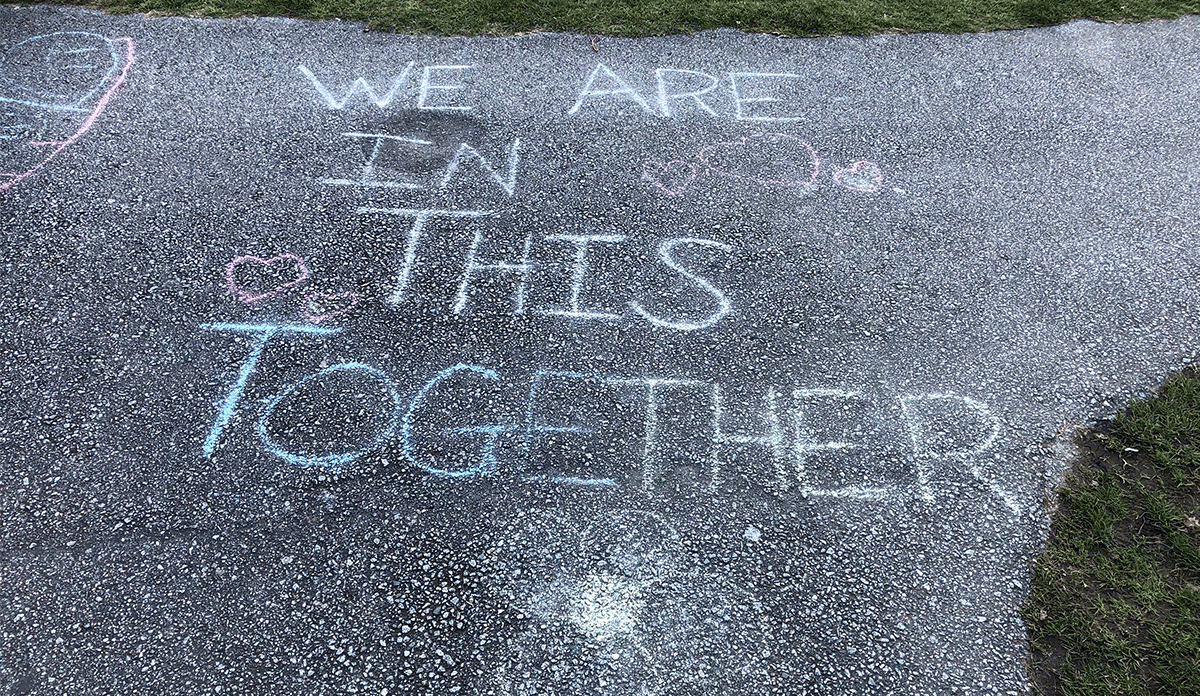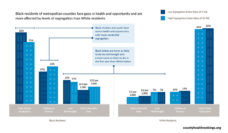Racial disparities in health have long been ubiquitous in the United States. Covid-19 has made these inequities impossible to ignore. Black Americans are 2.9 times more likely than white, non-Hispanic Americans to be hospitalized from Covid-19, and 1.9 times more likely to die, according to the latest numbers from the CDC. And, while 2020 saw a decline in life expectancy for all Americans, the biggest drop was among Black people.
It would stand to reason that these profound inequalities should be documented and shared widely with the public in order to achieve greater racial justice, along with a more effective pandemic response. Unfortunately, public messaging to drive change is not so simple, as citizens interpret the same information in different ways.
In our recently-published study of American adults, we randomly assigned provision of information obtained from the COVID Tracking Project to a sample largely representative of the American public. At the time our study was conducted, the Covid-19-related death rate for African Americans was approximately 2.5 times greater than for white Americans. We also surveyed people about their attitudes towards white and Black people, as well as how they evaluated their risk of catching Covid-19, and their feelings about how the government should respond.
We found mixed results from sharing information about racial disparities. Most troubling was the effect on those white Americans with relatively negative views towards African Americans. They perceived lower risk of infection and were less likely to support critical public health efforts — even when they were likely to be beneficiaries of the same policies. In short, information about racial disparities caused members of this group to say, “this is their problem, not ours.”
On the other hand, learning that they were at higher risk of death caused African Americans to perceive greater risks of infection. This is important, because risk perception is an important driver of policy preferences and safer behavior. Being aware of higher risk ought to induce citizens to take measures to protect themselves.
Our findings don’t point to any easy solutions, but they challenge the notion that documenting and spotlighting racial disparities is a uniformly effective strategy for eradicating them.
The positive findings were not just limited to Black Americans. White Americans with warmer views of African Americans, became more supportive of increased government action on Covid-19, more supportive of public health guidelines and less likely to say government was infringing on their personal liberties. In other words, highlighting the inequality led to greater cross-group solidarity among those already predisposed to care.
Our findings don’t point to any easy solutions, but they challenge the notion that documenting and spotlighting racial disparities is a uniformly effective strategy for eradicating them. This is a high-stakes realization, particularly while we are still in the throes of a profound public health emergency that requires near-universal support and compliance.
Attitudes about vaccines have followed a pattern that confirms our findings. Early reports already highlight that white men are among those most resistant to getting vaccinated, and that Trump-supporting white men are most skeptical of the pandemic severity. While it would be easy to dismiss such resistance as “their problem,” persistent non-compliance will stand in the way of achieving herd immunity. All of us, regardless of racial identity, will suffer if that is the case.
Racism continues to be a serious threat to American public health, so reducing negative attitudes towards others is a necessary step towards building a more equitable and just health care system and society. But those attitudes are slow to change and are a serious barrier to collective action in the face of the pandemic. Particularly during a crucial period of vaccine roll-out, government and other public health advocates cannot ignore the unintended negative consequences of spotlighting racial disparities.
Ensuring mass compliance may necessitate more targeted messaging. This might include aggressively reminding the reluctant that they, too, are routinely getting sick and dying from this disease and that the economic costs affect everyone. Focusing on the pandemic as a shared problem, despite the fact we know that it is experienced unequally, may be the most effective way to get everyone to do their part.
Photo via Getty Images















